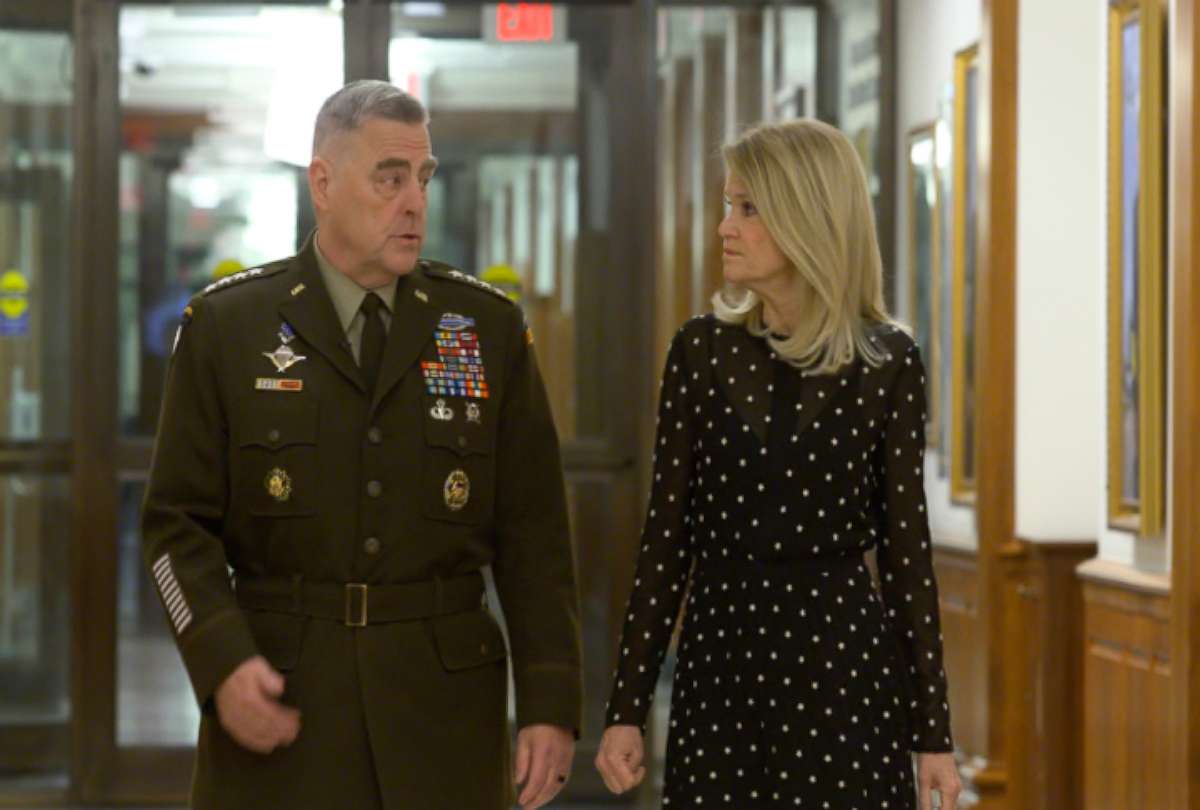Despite smaller footprint, military objective remains the same in Syria: Gen. Milley
The new chairman of the Joint Chiefs of Staff appeared on ABC's "This Week."
Gen. Mark Milley, chairman of the Joint Chiefs of Staff, said that although the military's footprint will remain small, it's important to keep watch over the Islamic State in Syria to meet the objective of permanently defeating ISIS.
"There are still ISIS fighters in the region. And unless pressure is maintained, unless attention is maintained on that group, then there is a very real possibility that conditions could be set for a reemergence of ISIS," the new chairman of the Joint Chiefs of Staff said Sunday on ABC's "This Week," in his first interview since taking the role. "The footprint will be small, but the objective will remain the same: the enduring defeat of ISIS."
Asked about current troop levels in Syria after President Trump's recent call to withdraw forces, Milley said over 500 troops would likely remain there.
"If I do my math and I look at the new troops going in and those going out, it could be more than 700 who remain," said "This Week" co-anchor Martha Raddatz.
Milley responded, "Well, there'll be less than 1,000 for sure, and probably in the 500-ish frame, maybe six. But it's in that -- it's in that area. But we're not going to go into specific numbers because we're still going through the analysis right now."
President Donald Trump announced plans to withdraw nearly all American troops from the Kurdish-controlled region in Syria in October, drawing bipartisan backlash in Congress.
His stance on troop deployments reversed only two days after the death of ISIS leader Abu Bakr al-Baghdadi, when the president said military forces "may have to fight for the oil."

The death of ISIS leader al-Baghdadi, which Milley said, "will have a very significant disruptive effect on the organization as a whole," raised concerns over a new potential leader of ISIS. But Milley said the Pentagon has "a considerable amount of information" on that individual.
"We'll see in the days ahead, in the weeks ahead, in the months ahead if he's able to piece together his organization or not," Milley said on "This Week" Sunday. "We'll pay close attention to him and where opportunities arise, we'll go after him as well."
As the impeachment inquiry intensifies, Milley also underlined the diplomatic significance of military aid to Ukraine, saying, "I think it's important to continue to help Ukraine maintain its free and sovereign status."
Milley declined to comment on the recent news surrounding National Security Council official Lt. Col. Alexander Vindman, who testified in a closed door deposition in the impeachment inquiry and was attacked by President Trump.
"I have learned over the years an active duty military officer is not to comment on active investigations," he said, adding that doing so would be inappropriate.
Milley also discussed U.S. military efforts in Afghanistan, which he insisted never again would be "a safe haven to terrorists that would attack the United States."
"In order for that mission to be successful, the government of Afghanistan, the Afghan security forces, are going to have to be able to sustain their own internal security to prevent terrorists from using their territory to attack other countries, especially the United States," Milley said. "That effort's ongoing. It's been ongoing for 18 consecutive years. I suspect it will be ongoing into the future for several more years."
After serving in Afghanistan as the Deputy Commanding General, Milley told ABC News he has never once regretted his decision to join the military. Born and raised in a veterans' family, he said he thinks about the soldiers who died under his command as Veterans Day approaches.
"The freedoms we have ... are not free. They're paid for in the blood of all those soldiers, sailors, airmen and Marines have been fighting for it for two and a half centuries," he said.




